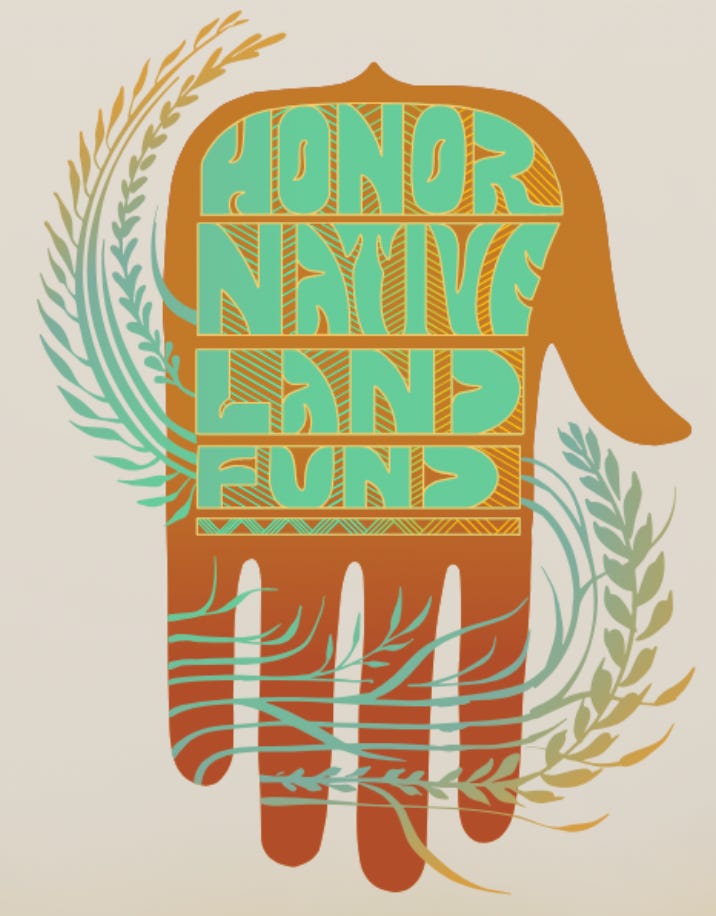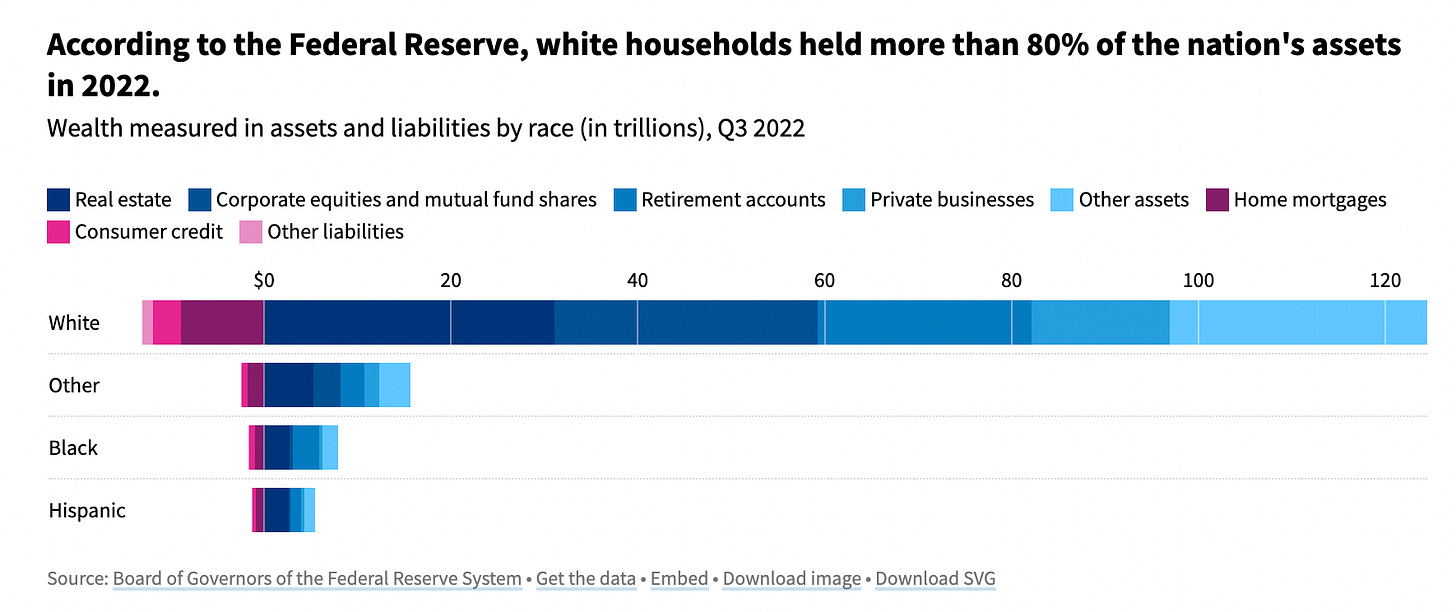Last week the Iowa legislature passed a bill to block foreign ownership of land. We need to stop the Chinese from buying up the nation, our Iowa legislators complain.
But as we race to protect Iowa farms, what are we really “protecting” and, by extension, who should be protecting it?
First, let’s look at the current state of affairs.
In 2022, White people controlled more than 80% of the nation’s wealth.
And if you look at just land ownership in the United States, 96 percent of land owners are white. They control 97 percent of the value and 98 percent of the acres of all privately owned land in the US.
Yet there are a lot of metrics out there to say that those who control the wealth and the land aren’t necessarily doing the best job taking care of it, especially here in Iowa.
The reckless over-application of nitrogen on farms could mean “epic” water pollution, as soon as this spring when the current drought ends.
85% of Iowa used to be prairie—today 74% of the land in Iowa has been cleared, plowed, and planted in row crops. Many of the plant and animal species that made Iowa Iowa no longer exist.
As of December 2023, 24.9 million hogs and pigs live in Iowa, compared to 3 million humans. The confinement units, or CAFOs, used to house so many hogs can cause the following issues (and more) according to the Centers for Disease Control and Prevention:
Luckily, there are people with a proven track record of stewarding the land available to step in. It is not the Chinese—it’s the continent’s first inhabitants.
Worldwide, Indigenous communities govern or own 30% of the world’s land. The majority of those tracts are considered to be in “good ecological condition” by the United Nations. Lands managed by Native communities have equal or higher biodiversity than protected areas like National Parks and Forests, and some studies have found that more than a third of all the “Intact Forest Landscapes” in the world are on Indigenous-controlled lands.
In other words, Native communities have been exemplary in land stewardship for eons and should likely control a lot more land here in the state of Iowa. Their leadership could help lead the rest of us out of our current ecological mess.
The #Landback movement is an idea to return—or ”rematriate” in the words of many activists—land back into Indigenous hands.
[Rematriation] is a call to reestablish Indigenous landscapes, bring back Indigenous traditional ecological knowledge and give stolen power back to the feminine. ~Sikowis Nobiss, https://bit.ly/48wPqH2
Yet while the #Landback has gotten an increasing amount of attention, only a limited amount of land or money has been donated to the cause thus far.
Sikowis Nobiss is a member of the Plains Cree/Saulteaux of the George Gordon First Nation in Saskatchewan, Canada, and has raised money for all kinds of causes. But trying to fundraise for Indigenous people to purchase land in the Midwest has proven exceptionally challenging.
“I can raise funds to fight a pipeline or to end the Missing and Murdered Indigenous Relatives crisis,” she wrote in her blog and told me on a Zoom call. “But it is almost impossible to raise funds…to buy just one acre of land in Sioux City to start a Native urban garden, or…a few acres near Des Moines so we can reclaim first foods and ReMatriate the prairie.”
Nobiss has put in a lot of time talking with Caucasian groups and individuals who claim to be interested in the movement. But, Nobiss reports, “none of these conversations have ever led to any change.”
This lack of action has now inspired Eric Anglada, a white man of faith who, with his wife and several friends, is partnering with Nobiss and the Great Plains Action Society (GPAS) to launch the Honor Native Land Fund. The fund is the first of its kind in Iowa, and one of only a few such funds in the entire country. The idea of these funds is that non-natives can show up, not to swoop in as saviors, but to donate money to help Natives like Nobiss purchase land.

“We are calling on non-native white settlers across the Midwest from Chicago to Omaha, Minneapolis to St. Louis to consider the ways they have benefitted from colonization and to voluntarily offer a kind of rent or tax to Indigenous peoples,” explains Anglada.
“We feel like, in the face of the climate crisis, one of the most important things we can do is support Indigenous people reclaiming Indigenous lifeways—that is a key part of what is going to heal the land and the climate.”
The Honor Native Land Fund will officially launch March 6th, 2024 with a webinar conversation. Nobiss and fellow Indigenous activist Shelley Buffalo will discuss #Landback and how contributions will be utilized. Donations are accepted through the fund link at any time.
“This is a concrete way in which white people can participate in healing some of the harms done from colonization,” says Anglada. “If we can play a small role in the repair—if we can play a role in helping – we would be honored.”
Want to know more about what is going on in Iowa? Subscribe to the Iowa Writers Collaborative Sunday Round-Up!







Great! Use the link to the fund to find out more.
https://honornativelandfund.org/
Thanks, Beth, for a fact-based summary of the current sad state of affairs -- well-written, as always. And kudos for giving us information on an exciting proposal that could begin to turn things around, one step at a time.